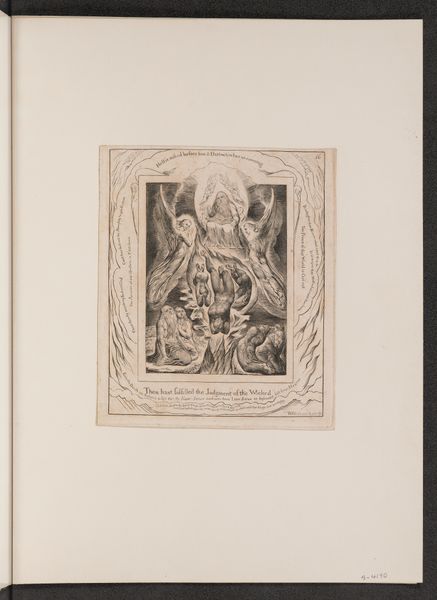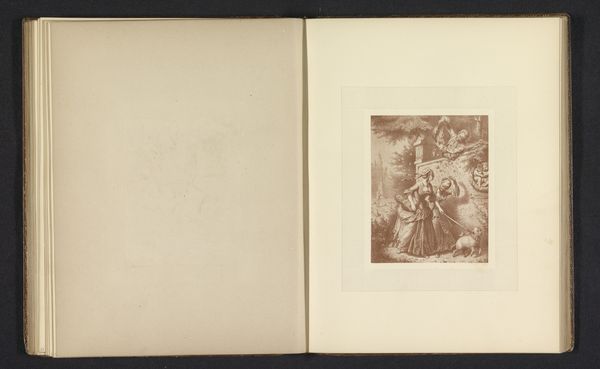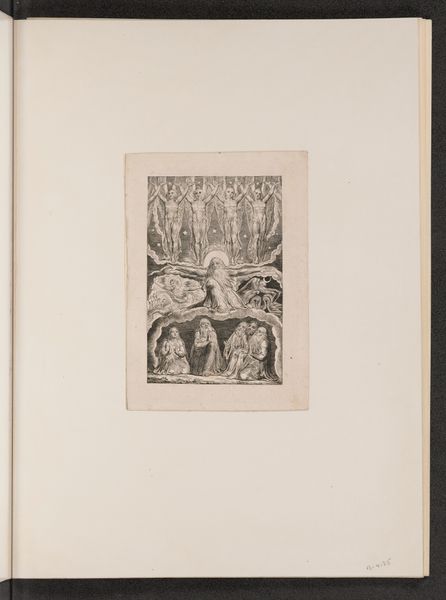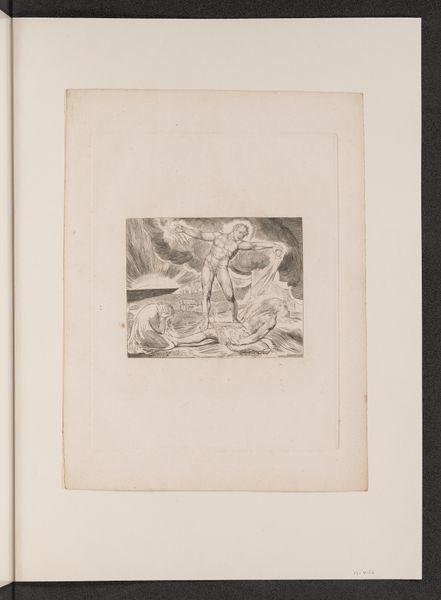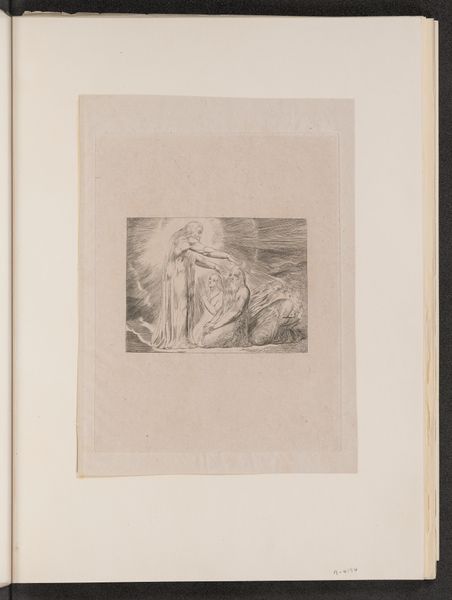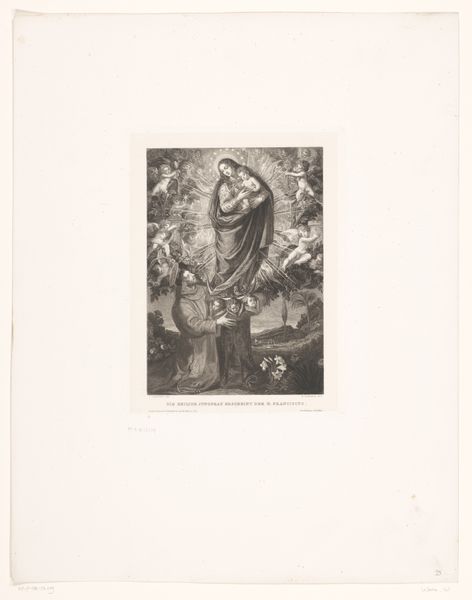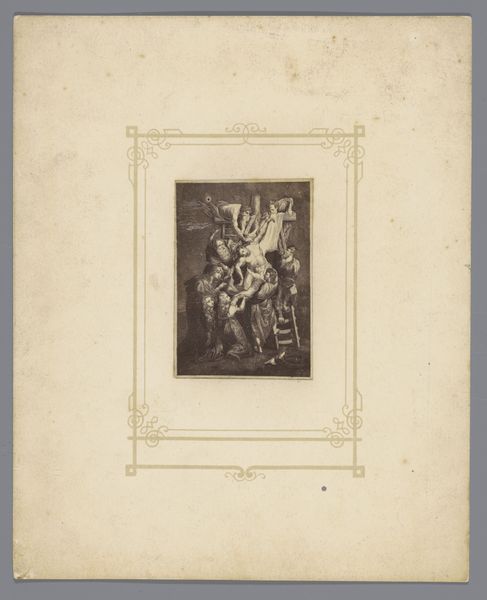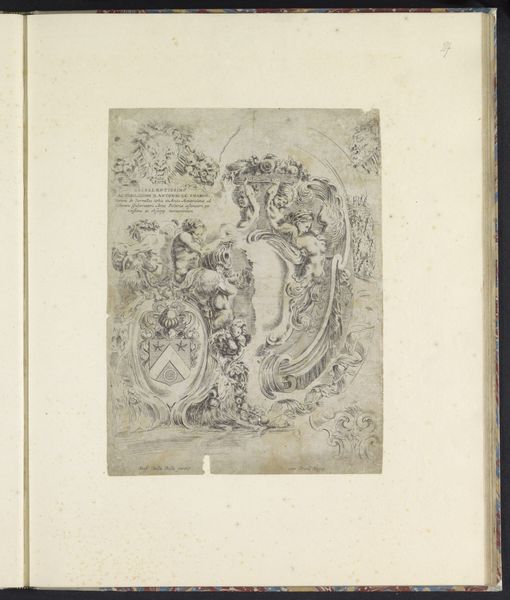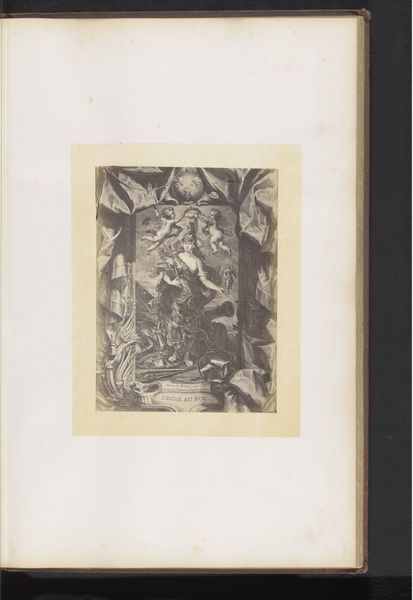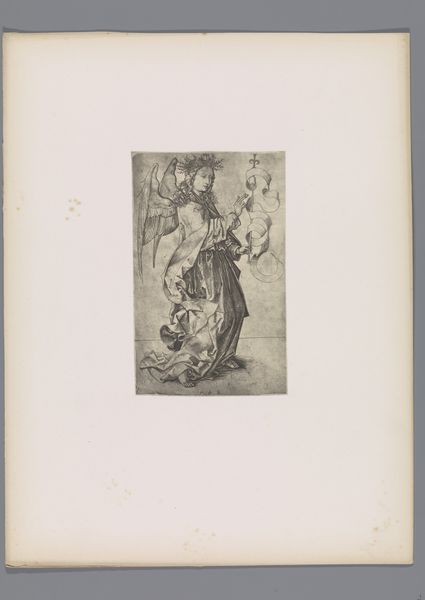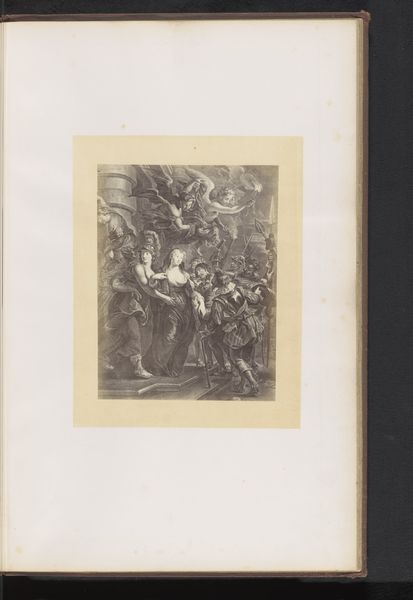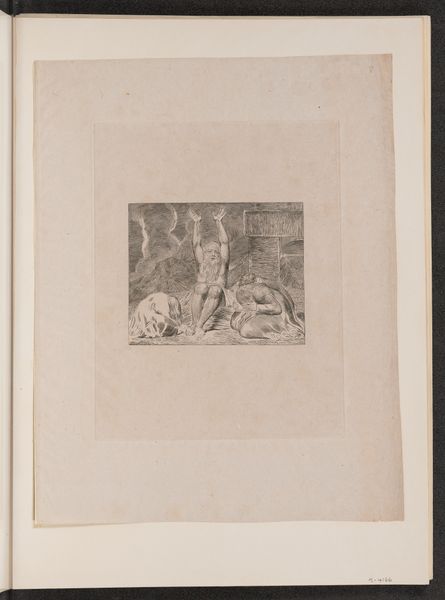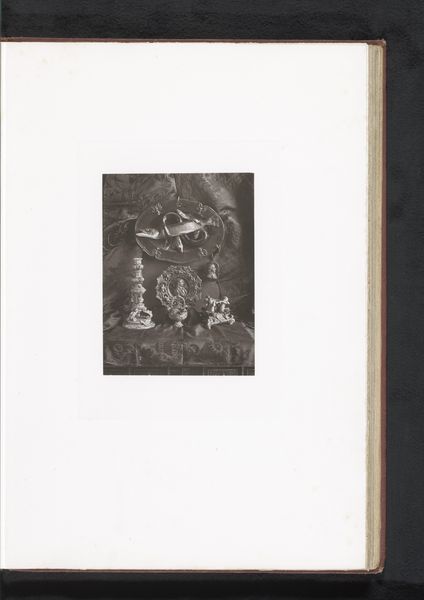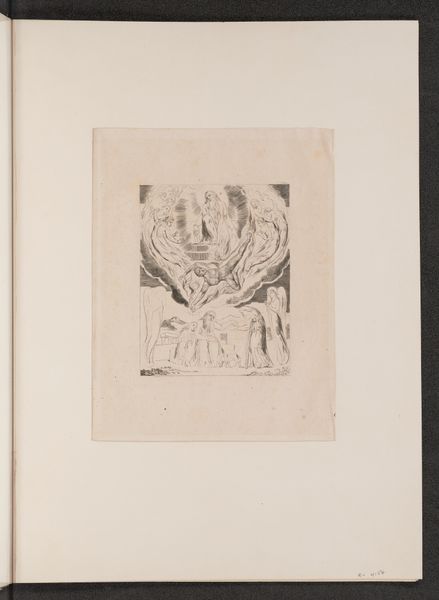
print, etching, engraving
#
aged paper
#
homemade paper
#
narrative-art
#
ink paper printed
# print
#
etching
#
sketch book
#
hand drawn type
#
figuration
#
personal sketchbook
#
hand-drawn typeface
#
romanticism
#
line
#
pen work
#
sketchbook drawing
#
history-painting
#
sketchbook art
#
engraving
Copyright: National Gallery of Art: CC0 1.0
This is William Blake's etching, "The Fall of Satan". The composition is dominated by swirling, dynamic lines that convey a sense of chaotic descent. The use of etching creates a stark contrast between light and shadow, enhancing the dramatic tension of the scene. Blake employs a vortex-like structure to depict the fall, drawing the viewer's eye downward into a maelstrom of figures. This visual device mirrors the theological concept of the fall from grace, represented through the spiraling motion and distorted forms. The figures, caught in the descent, are rendered with expressive intensity, their bodies contorted to convey suffering. Blake’s art destabilizes the traditional religious values, prompting a re-evaluation of Milton’s text. The emphasis on Satan's fall can be seen as a commentary on the nature of rebellion and the complexities of moral judgement. The formal elements here serve not merely as illustrations, but as critical tools in a larger philosophical discourse, encouraging us to question fixed narratives and embrace the transformative power of re-interpretation.
Comments
No comments
Be the first to comment and join the conversation on the ultimate creative platform.
